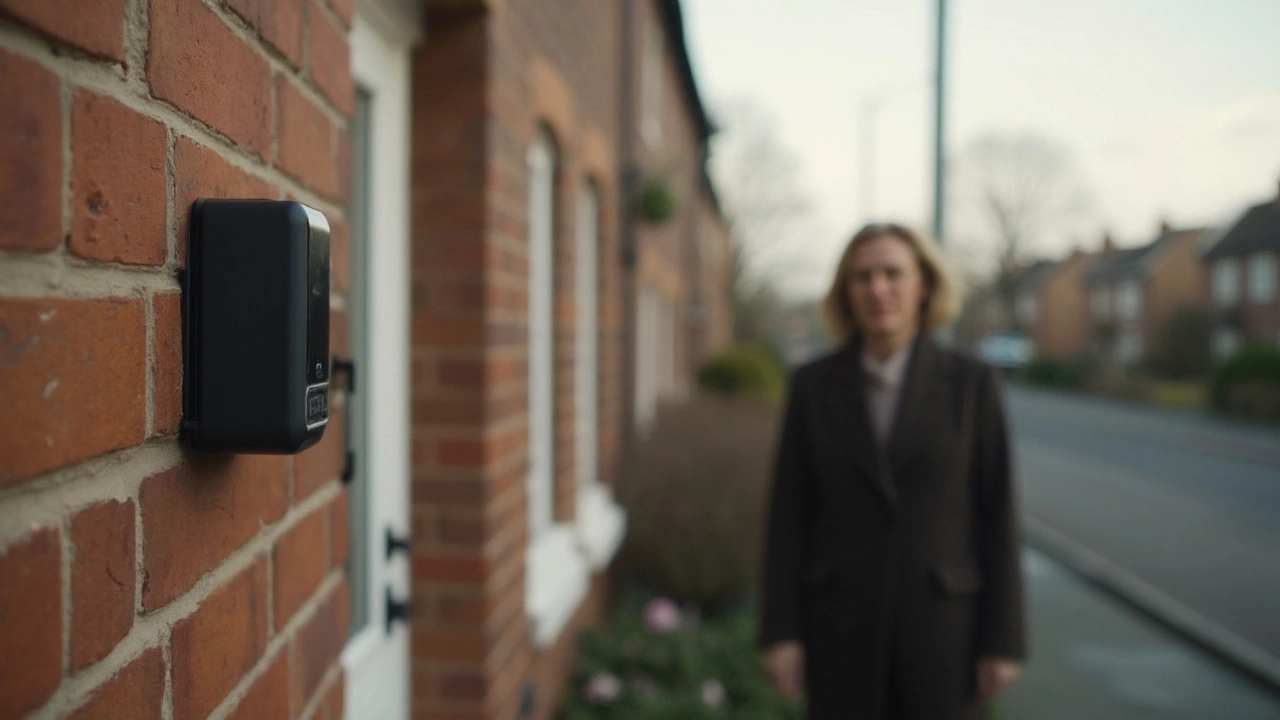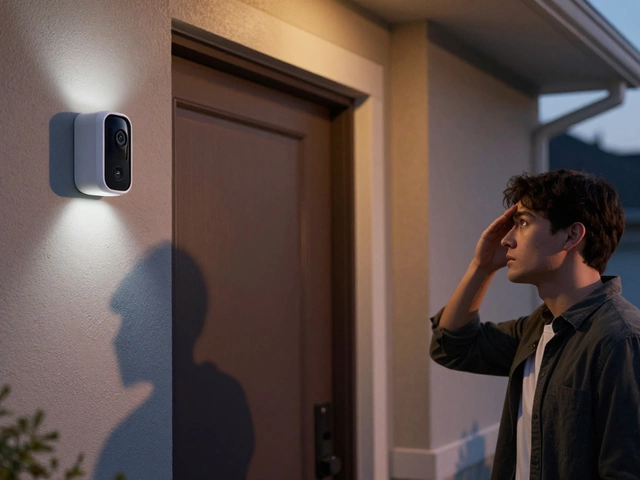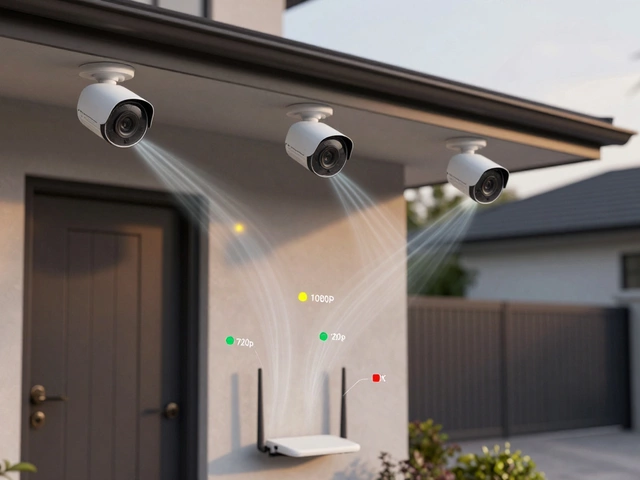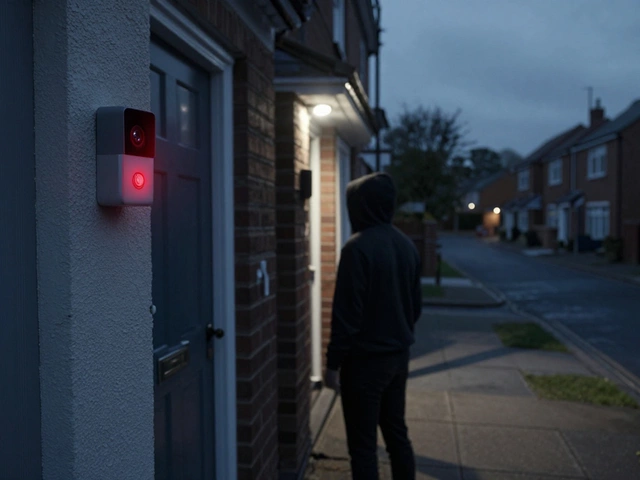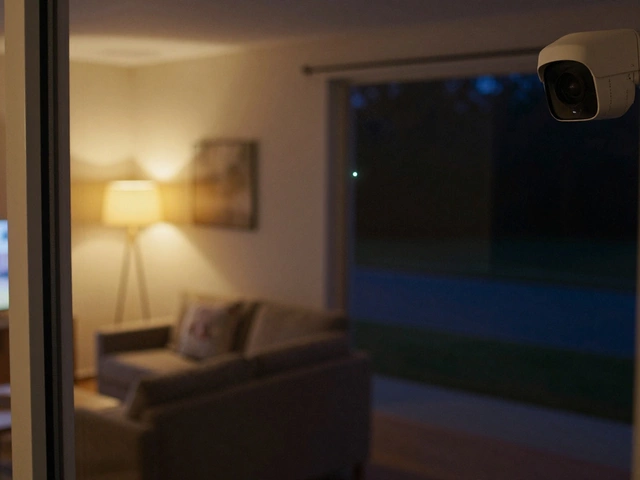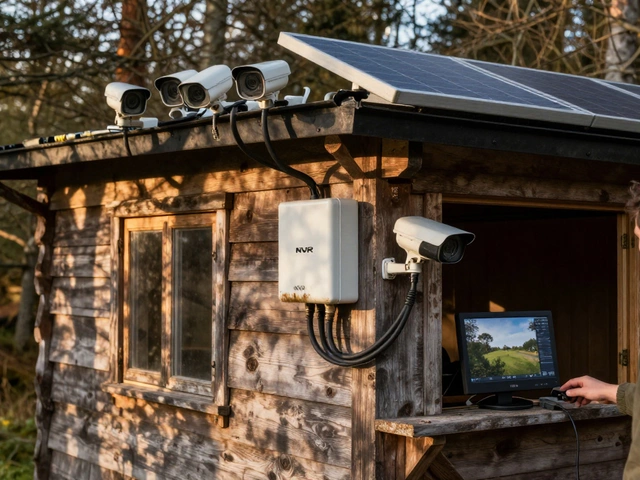Ever feel like someone’s watching you every time you grab your Amazon package? Picture this: you reach for your doormat and notice your neighbor’s video doorbell practically staring you down. You catch your own face on their little digital eye every morning. Annoying, maybe a bit creepy—but is it even allowed? The question of whether your neighbor can point a video doorbell, like a Ring or a Google Nest, right at your front door sits at the messy cross-section where new tech collides with old-fashioned neighborly privacy. The answer isn’t just black and white—it’s tangled up in legal rules, community standards, and even a touch of etiquette.
The Law: What’s Actually Allowed with Video Doorbells?
Okay, time to bust a myth first—there’s no country or even U.S. state that has a law specifically about video doorbells watching your front step. The rules are a patchwork, stitched together from privacy laws, trespassing laws, and sometimes housing association rules. At heart, the question boils down to “reasonable expectation of privacy.” Simply put, you have a lower expectation of privacy on your front porch than you do inside your living room. That’s why you’ll never see a cop taking legal action just because a camera catches a public sidewalk.
But things do get complicated if your neighbor’s video doorbell privacy habits get out of hand. If their camera captures you doing something private in your own home—for example, through a window, or you’re inside your hallway—now they’re skating on thin ice. Laws differ, but most U.S. states allow recording video in public places, and your front step is usually considered a “public-facing” area. Audio, however, is much trickier. In eleven states, audio recording without everyone’s consent is actually illegal. If you suspect your neighbor’s camera is picking up entire conversations on your porch, and you live in a place like California or Illinois, you could have grounds to raise a formal complaint.
Across the pond, the UK’s General Data Protection Regulation (GDPR) has taken a harder line. After a 2021 court case where a man was forced to pay damages for aiming his Ring camera into his neighbor’s garden and driveway, UK homeowners have to be a lot more careful if they record beyond their own boundaries. Similar principles are popping up elsewhere in Europe, where video footage that strays onto neighboring property may trigger hefty fines under privacy laws. So geography really matters.
Let’s get practical. Can you call the police if your neighbor’s video doorbell faces your door? In most cases, probably not, unless they’re recording where you have a strong expectation of privacy. It might break HOA rules or local ordinances, though—don’t overlook your homeowners’ association documents. They can be stricter than city or state law. Conversely, if you live in an apartment or condo, check your building’s bylaws. Many have written rules limiting what can be filmed in shared spaces.
One more twist—video footage is sometimes used as evidence. So if something ever happens on your porch, your neighbor’s obsessive camera could save the day. If it works in your favor, you might see the device in a whole different light. Knowing this, video doorbell privacy is a balancing act between safety and personal boundaries.
| State/Country | Audio Consent Law | Video Recording in Public |
|---|---|---|
| California | All-party Consent | Allowed |
| Texas | One-party Consent | Allowed |
| Illinois | All-party Consent | Allowed |
| UK | GDPR & Consent | Limited to Private Property |
| Florida | All-party Consent | Allowed |
| Canada (Ontario) | One-party Consent | Allowed, but HOA/Condo restrictions may apply |

When Security Cameras Cross the Line: What Counts as "Spying"?
Now let’s talk about the itch under your skin—when does video doorbell surveillance feel less about safety and more like snooping? Here’s a real-world fact: not all cameras are created equal. A standard video doorbell has a field of view between 130 and 180 degrees. Some models can see almost everything in their orbit. That means if your doors face each other, it might be impossible for your neighbor’s camera not to see your comings and goings. Still, aiming that digital gaze right at your entryway can feel invasive fast.
The difference between security and spying usually hinges on intent. If the device broadly covers a walkway that happens to include your door, that’s usually above board. But if your neighbor deliberately points it, zooms in, or even adjusts the angle after you’ve asked for more privacy, it’s crossing a line. A British court in 2021 handed down a £100,000 fine to someone who pointed his video camera directly at a neighbor’s window, not just a communal footpath. That’s a precedent showing courts are starting to side with people who feel harassed by smart cameras.
Technically, it’s nearly impossible for you to “prove” your neighbor’s intent unless you catch them in the act, or they admit it. But there are clues you can watch for: Are they moving the angle over time? Are they saving and sharing videos outside of legal requirements? Have you noticed them zooming in when you’re at your door or acting oddly when you step outside? Some video doorbells send owners every new motion clip, so if you chat on your porch and your neighbor suddenly texts you asking about the conversation, something fishy is going down.
Here’s the twist—video footage might show you, but it usually only records “events.” You’re only on camera when there’s motion or sound. Some devices let owners create privacy zones that block off certain parts of the camera’s field. If they want to keep the peace, your neighbor can set up these zones to avoid recording your personal space. Not all doorbells have this feature, but it’s there on most new models from Ring and Google. Next time you talk, ask if they’ll try it.
If you live in an apartment, especially in shared hallways, a camera directly pointing at your unit is a hard “no”—most leases strictly prohibit it. Condos and HOAs often treat hallway cameras as a violation for exactly this reason. In a dense city or close-knit townhomes, anything that covers more than the owner’s immediate entry point is pushing the limits of neighborliness. There have even been news reports from New York where neighbors ended up in court battles, with the offending resident told to take down or redirect the camera.
So what about the “creep factor”? Just because a neighbor has a legal right doesn’t mean you’re wrong to feel uncomfortable. Etiquette matters. Good neighbors talk first and set cameras up last. If your first time seeing the new gadget is on your morning coffee run, it’s fair to be annoyed. Some folks add window stickers or signs to let you know they’re recording, which can help avoid surprises.
Don’t forget, smart devices are hackable. According to a 2023 Consumer Reports survey, 9% of smart camera owners had their devices compromised or suspected unauthorized access. That’s a real risk—someone halfway around the world could theoretically see both your door and the neighbor’s. If your neighbor is worried about your privacy, direct the conversation there; safety is a shared concern.
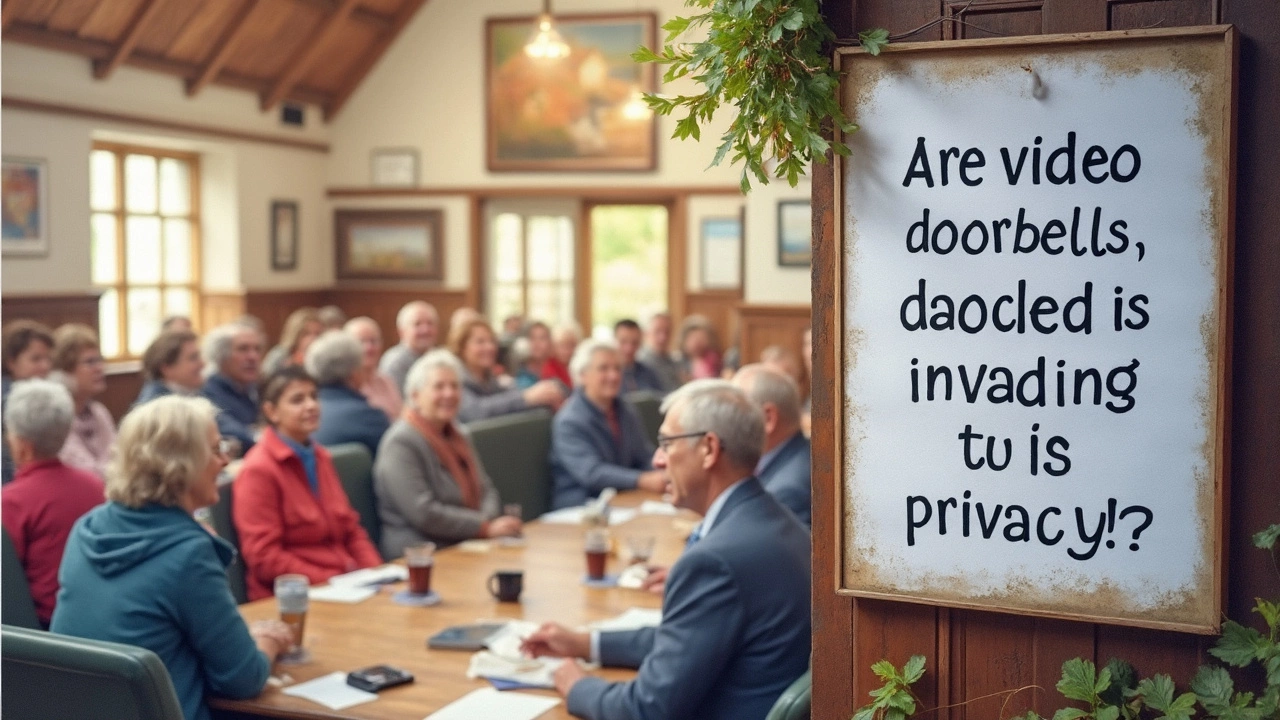
What To Do If You're Not Comfortable: Friendly Moves, Formal Actions, and Legal Steps
Maybe you read all this and still feel uneasy. So what do you do if you’re caught in your neighbor’s lens every day? First, take a breath—the smoothest path is usually a friendly one. Most people don’t want to cause trouble and may not even know their doorbell takes in your space. A calm conversation does wonders: point out what the camera sees, ask if they’re aware, and suggest a privacy zone or a tilt in a different direction. Stay specific—explain your concern and why it matters (keeping your kids’ comings and goings private, for instance, hits home for most parents).
If that doesn’t work, document what’s happening. Make a quick written note of every time you notice the camera angle or feel uncomfortable, and snap a photo of where it’s pointing—without trespassing or invading their space. If it feels over the top, bring this record (nicely!) to your neighbor or, if you’re in an apartment or HOA, to the management office. Policies might do what diplomacy can’t. Plenty of HOAs and building managers have forced adjustments, especially when residents describe genuine discomfort and offer clear evidence.
If things get tense, check your city or state’s local ordinances. There are rare cases—mostly in California, New York, and big cities—where there are specific bans on cameras that record areas beyond your property line, or even the shared hallway. These rules are usually overlooked, but when challenged with enough complaints, cities will occasionally force a resident to adjust or remove their device.
If you suspect audio recording is happening, especially in an all-party consent state, you’ve got a stronger hand. Contact your state’s attorney general’s office, privacy watchdogs, or a local legal aid group. Don’t just threaten a lawsuit—ask for guidance first. Sometimes a warning letter or mediation solves things faster than court.
Tech-savvy types can also take steps to block a camera’s view without starting World War III. Strategic planters, a privacy screen, or frosted glass on your front door can break up the line of sight. Tossing a towel over the lens is a no-go, though—touching someone else’s property (even if it’s annoying you) is a great way to land in hot water yourself.
If all else fails, and things are genuinely out of hand, you’ve got legal options. Document everything, reach out for legal advice, and if necessary, pursue a formal complaint. Lawsuits are rare but not unheard of—and often, just the threat is enough to bring people back to the table.
Heads up: nobody likes a privacy arms race. Getting your own doorbell cam to “watch the watcher” can just stress everyone out and escalate things for no good reason. Focus on what you can control, talk it out, and remember—today’s prickly tech drama could turn into tomorrow’s shared safety net if you approach it with some neighborly common sense.

